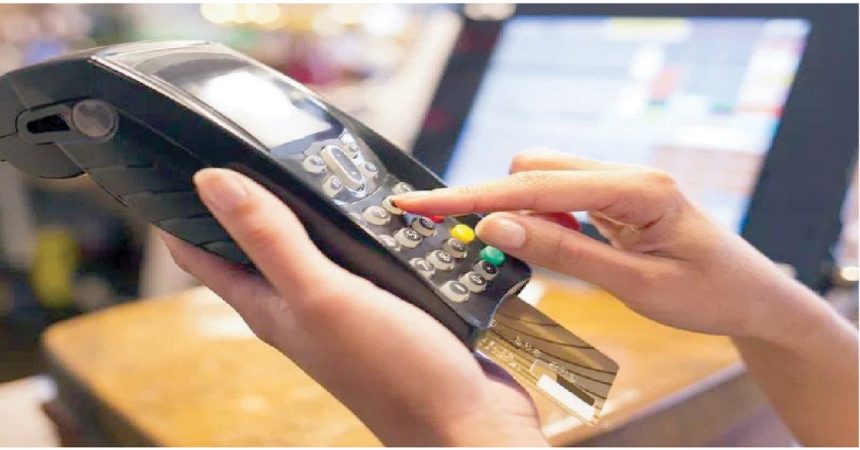Many Point-of-Sale (PoS) terminal operators often move their devices across locations or operate in unregistered areas, making it difficult to trace illicit activities. Geo-tagging closes this loophole by restricting devices to their certified addresses. With improved oversight, regulators can track where and how PoS machines are being used, offering better data for policymaking and e-fraud prevention. By cleaning up the ecosystem and mapping operators, the regulator can better expand formal services to rural populations, writes JOSEPH INOKOTONG.
In Nigeria’s rapidly evolving financial landscape, digital transactions are no longer a luxury but a necessity. Point-of-Sale (PoS) terminals, once an alternative, now sit at the centre of daily commerce, helping millions of Nigerians access cash and make payments amid declining brick-and-mortar banking. Yet, with this growth has come rising e-fraud, weak consumer protection, and limited oversight.
To restore trust and improve efficiency, the Central Bank of Nigeria (CBN) has introduced a new regulation requiring mandatory geo-tagging of all PoS terminals. The policy, part of its circular on “Migration to ISO 20022 Standard for Payment Messaging and Mandatory Geo-Tagging of Payment Terminals”, directs that every PoS machine must capture and transmit its exact location at the start of a transaction. Any device operating outside a 10-metre radius of its registered business address will be flagged, while non-compliant terminals face deactivation. The move, though challenging for operators, promises to reshape Nigeria’s payments ecosystem by curbing e-fraud, boosting transparency, and driving deeper financial inclusion.
Why Geo-tagging matters
At its core, geo-tagging ties each PoS machine to a specific, verifiable location, and the CBN argues this will curb fraud because fraudulent PoS operators often move devices across locations or operate in unregistered areas, making it difficult to trace illicit activities. Geo-tagging closes this loophole by restricting devices to their certified addresses. With improved oversight, regulators can track where and how PoS machines are being used, offering better data for policymaking and e-fraud prevention.
The policy strengthens consumer protection and supports financial inclusion. Customers can be assured that payments occur within regulated and verifiable merchant locations, reducing risks of scams.
By ensuring proper mapping of operators, regulators can better identify underserved areas and expand financial services to rural and peri-urban communities.
CBN Governor Olayemi Cardoso stressed that while Nigeria’s fintech ecosystem has positioned the country as an innovation hub in Africa, oversight must keep pace. “We must continue to leverage digital channels to enhance access to finance and credit, particularly for underserved populations. However, fintechs and banks must ensure their platforms are not exploited for fraudulent activities. Strengthening KYC and transaction monitoring is essential,” he said.
Economic benefits of the policy
Enhanced trust in digital payments – Nigeria has one of Africa’s most vibrant digital economies, but e-fraud remains a barrier to adoption. By bolstering security, geo-tagging reassures users, encouraging more businesses and consumers to embrace digital channels.
Deeper financial inclusion – With over 5.9 million active PoS terminals as of March 2025, these devices are Nigeria’s de facto banking halls. By cleaning up the ecosystem and mapping operators, regulators can better expand formal services to rural populations, an essential step towards CBN’s goal of 80 percent financial inclusion by 2026. Improved data for policymaking –
Geo-location data provides government and financial institutions with insights into transaction flows, underserved regions, and consumer behaviour. This intelligence can shape credit expansion, fintech investment, and infrastructure planning.
Global integration
Alongside geo-tagging, the CBN has mandated migration to ISO 20022 messaging, a new global payments standard adopted by SWIFT. This places Nigeria’s financial system on par with advanced markets, making domestic and cross-border payments more efficient and secure. Investor Confidence –
Transparent systems attract capital. Nigeria’s fintech sector already draws significant foreign investment, with several startups reaching “unicorn” status. A more secure payment environment will strengthen investor confidence in scaling digital infrastructure.
Implications for PoS operators
While the policy promises long-term benefits, the immediate implications for PoS operators, especially small-scale agents, are significant in terms of compliance costs because operators must ensure devices are GPS-enabled, Android 10 or higher, and integrated with the National Central Switch. For many, this means upgrading terminals at extra cost.
Operational restrictions –
Mobility has been part of the appeal for PoS operators, who could move machines to high-demand areas. With geo-tagging, operators are tied to fixed locations, reducing flexibility. Risk of deactivation.
Terminals not tagged within 60 days of the directive or those operating outside registered coordinates will be barred from processing payments. This could disrupt income for non-compliant agents. Greater accountability –
While stricter oversight may appear burdensome, it also legitimizes serious operators, protecting them from fraudulent competitors and building long-term trust with customers. New market dynamics – With mapping in place, regulators may encourage expansion into underserved areas. For operators, this opens opportunities to target rural markets where demand for digital financial services remains high.
PoS: The backbone of Nigeria’s cash economy
Since their introduction in 2013, PoS terminals have transformed Nigeria’s financial system. With about 1,600 operators per square kilometre, they are now the most visible face of banking across the country.
Transactions soared to ₦10.51 trillion in Q1 2025, a 301.67 percent jump from Q1 2024, according to the Nigeria Interbank Settlement System (NIBSS). There are 8.36 million registered terminals, with 5.9 million actively deployed. Many Nigerians rely on PoS for everyday services – cash withdrawal, transfers, bill payment – often at a premium fee. For banks, PoS networks cut the cost of maintaining branches and ATMs. For consumers, they offer convenience and accessibility in an economy still heavily cash-dependent. Yet, rising e-fraud complaints, network challenges, and inconsistent service quality have tainted the industry’s credibility, problems the CBN hopes geo-tagging will help resolve.
Striking the balance: Regulation vs Innovation
The CBN’s approach reflects the global challenge of regulating fast-moving financial innovations without stifling growth. Cardoso has repeatedly emphasized a “zero tolerance” stance on compliance breaches, but also acknowledges the need to foster innovation. His call for collaboration underscores this balance: “Together, we must build a market based on strong governance and transparency. As regulators, we will maintain a zero-tolerance approach to compliance violations.”
Industry players, however, stress that successful implementation depends on striking this balance. As one Lagos-based PoS aggregator noted, network reliability, device affordability, and fair transaction costs remain just as critical as compliance.
Nigeria’s payments ecosystem is at a defining moment. Geo-tagging and ISO 20022 migration are not just regulatory requirements, they are foundational reforms aimed at creating a safer, more transparent, and globally integrated digital economy. For consumers, the policy promises stronger protection and greater trust in digital payments. For the economy, it provides better data, investor confidence, and a pathway to financial inclusion. For operators, it means higher compliance standards, but also an opportunity to consolidate legitimacy and expand into untapped markets.
As Nigeria pushes toward a digital-first financial system, the success of this policy will depend on collaboration between regulators, banks, fintechs, and the millions of PoS operators who have become the backbone of financial access for everyday Nigerians.
READ ALSO: CBN orders geo-tagging of all PoS terminals within 60 days
WATCH TOP VIDEOS FROM NIGERIAN TRIBUNE TV
- Let’s Talk About SELF-AWARENESS
- Is Your Confidence Mistaken for Pride? Let’s talk about it
- Is Etiquette About Perfection…Or Just Not Being Rude?
- Top Psychologist Reveal 3 Signs You’re Struggling With Imposter Syndrome
- Do You Pick Up Work-Related Calls at Midnight or Never? Let’s Talk About Boundaries






